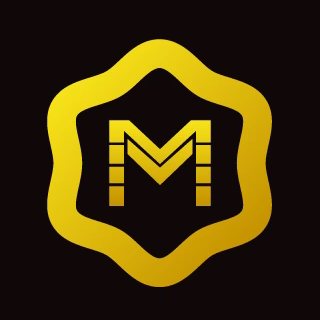Getting Started With muOS
I’ve put together an abbreviated guide/FAQ with multiple sources for people who want to get started.
General Sources
https://community.muos.dev - Community Forum (Here)
https://muos.dev - Main Website
MustardOS - Discord
Is my device supported? (As of 9/5/25)
Not Supported:
- RG35XX
Public Release:
- RG28XX
- RG35XX+/2024/SP/H
- RG34XXH
- RG40XXH/V
- RGCubeXX
- RG34XXSP
- RG35XXPro
- TrimUI Smart Pro
- TrimUI Brick
Planned:
- MagicX Zero28
How do I get access to a test image?
You should support muOS if you want to support muOS, not because you want one of the test releases. But if you really want it anyways, look into supporting muOS.
How can I tell what version of the RG35XX “Plus” that I have?
Model: Sticker
- RG35XX+:
RG35XX Plus - RG35XX 2024:
RG35XX+
Getting Started
I’m upgrading to Pixie from an older version
I’m upgrading to Goose from Pixie
Remove any themes you have installed from SD2 before upgrading to Goose.
Where did my backups go? I’m migrating from a version before Pixie.
You will want to go to ../BACKUP on your SD card and change the extension from .zip to .muxzip. Due to the way certain OS’ and browsers were handling (and modifying) .zip files, muOS transitioned to using .muxzip files (and other extensions that have special meaning). These can also be opened using any program that can open .zip files.
Installation Guide/Download Sources
General Device Hotkeys
See this for a full list of hotkeys.
A few important hotkeys:
Start + SelectorMenu + Start: Quit program/emulatorL2 + R2 + Start: Safe restart
Use this instead of the hardware reset button! See this article on why the Reset button shouldn’t be used most of the time:
When Should I Use The Reset Button?L2 + R2 + Select: Safe shutdownMenu + Vol(Up/Down): Raise/lower brightness (Anbernic devices)Slider + Vol(Up/Down): Raise/lower brightness (TrimUI devices)
If your display seems to be turned off and you think your device is frozen, try this shortcut first! It might turn the display back on if it is turned off!L2 + R2 + X: ScreenshotL2 + R2 + A: DPAD <> Analog SwapPower: SleepStart + X: Quick menu May not work in Standalone emulators.
Where did the Migrate to SD2 script go?
What type of SD card should I get?
In general, you should concentrate on okay random file write and okay file read. Most cards already have enough speed to max the card reader in the Anbernic and TrimUI devices. In general name brand SD cards will work for both SD1 and SD2 for all of the devices supported by muOS.
28XX/35XX 2024 WiFi
You will want to buy a WiFi adapter with a compatible 8188eu(s) chipset. The kernel modules are now included with images for Goose. Enable script soon ™.
How do I add content to my device?
How do I assign emulators to my content?
In general, you can pull up the Content Options menu, where you can search, assign core/system, and assign governors. If you select the core menu, you’ll be able to browse a list of all possible systems and emulators you can run. Once you’re in the category of system you want, you can assign a standalone or Retroarch core to the content you want to play. Use the A button to assign individually or the X button to assign to a directory.
What are some applications I can add to my device?
Some applications may not have updated yet for Goose
- Portmaster: Comes pre-installed on muOS. You can filter what games/applications you can install via the “Games” section on their website.
- Scrappy - Not updated for Goose yet, run at your own risk - An application based off Skyscraper that can use screenscraper.fr and templates.
- Bluetooth - ANBERNIC DEVICES ONLY - A Bluetooth frontend application for the system backend service that allows general use with Bluetooth keyboards, controllers and audio devices.
- SFTPGo - This is a web server on your device you can enable to access your device remotely.
- Syncthing - This is an open-source file sharing service you can self-host for free on your network.
- Activity Tracker
- vaixterm - Terminal emulator replacement for SimpleTerminal
- Rockbox - Music player application with device integration for lid, CPU governor, and panel control.
- There are more applications pre-installed under Applications/Utilities and the Web Services menu in your device.
- More applications are listed in the Applications section in the forum.
How do I add themes?
You will want to find muxthm files, which can be placed in ../MUOS/theme. Use the list below to identify the resolution for your device.
Per Device Resolutions:
- 640x480: RG28XX, RG35XX(+/2024/H/SP/Pro), RG40XX(H/V)
- 720x480: RG34XX(H/SP)
- 720x720: RGCubeXX
- 1024x768: TrimUI Brick
- 1280x720: TrimUI Smart Pro
HDMI Output Resolutions: Note: TrimUI devices do not have HDMI out capabitlities
- 720x480: 480p
- 720x576: 576p
- 1280x720: 720p
You can download them from a few different sources:
- MustardOS Themes : The official muOS Themes Repository
- Theme Releases - MustardOS Community Forum : The themes section in the forum
- You can check the #custom-theme-readonly section in the Discord for themes that haven’t been uploaded to the forum/site yet.
Can I download ALL of the themes?
The theme I want doesn’t have the resolution my device uses/doesn’t support HDMI.
This is alright, the theme engine will try to fit the theme the best it can using what’s available. You may get black bars/letterboxing if the aspect ratio doesn’t match your device.
The theme I want isn’t a muxthm file and the system doesn’t recognize it…
As of Pixie, themes are only supported as muxthm archives, older themes won’t work. You can try getting in touch with the theme author, but there is nothing we can do about this.
How do I add boxart?
- Artwork | MustardOS
- Alternatively, you can have Scrappy do it for you.
How do I add system images in Content Explorer?
Some themes support something called Grid Mode. In Grid Mode you can add art to display for your systems.
Where can I find Grid Mode images?
My boxart is hiding my game titles/the game title isn’t showing completely
Retroarch
This is a topic entirely deserving of its own guide, here’s one created by RetroGameCorps. Additionally, here are some topics that you may encounter while using muOS.
Getting Started (With Retroarch)
While much of Retroarch is already set with the optimal settings for muOS and your device, you may want to change things. If you aren’t already familiar with Retroarch, it may pay off to get familiar with the software in general.
For those not familiar, a decent number of systems are covered by libretro “cores”, these are emulator libraries that hook into the Retroarch frontend.
Here are some topics that can apply directly to muOS:
- BIOS Information Hub - Libretro Docs
- Overrides: Content/Folder/Core-Specific Settings - Libretro Docs
- Input and Controls - Libretro Docs
- Shaders - Libretro Docs
- Disc Swapping - Libretro Docs
- Softpatching ROMs - Libretro Docs
Retroarch Cheats
Retroarch has cheat support for games it recognizes the hash of. In Archive Manager, there should be a Retroarch Cheat archive you can install; this is a copy of the same cheats database found here. You can also add cheats to Retroarch if you have them offhand.
Retroarch Menu Interface
The user interface uses Ozone. If you want the old GUI for some reason, refer to the following guide:
Retroarch Troubleshooting and Optimization
There’s also some excellent wiki articles in the libretro documentation on optimization and deeper settings in Retroarch:
Retro Achievements
You can setup RetroAchievements through the normal process in Retroarch. You need to do the following:
- Start Retroarch through the Applications menu
- Navigate to the achievements options and enter your account information
- Save your general Retroarch config.
Refer to the libretro documentation for core compatibility with achievements.
Performance Quirks in muOS
There have been a few performance quirks that have been discovered since Pixie came out.
- Overlay needs to be enabled: for some reason not having an overlay, including a blank overlay, is detrimental to Retroarch performance.
- Audio driver needs to be
alsathread: havingpipewireset directly as the output audio driver is detrimental to Retroarch performance, usealsathreadinstead. - Performance governor for emulators that are high overhead: this mitigates poor performance, but having the governor set to
Performancewill have the CPU clocked at the maximum all the time, at the cost of battery.ondemandandconservativewill clock the CPU higher as needed, but may cause stutters due to the CPU not ramping properly.
Portmaster
Please see the instructions on how to download and install games through Portmaster on their website. Most if not all of your questions can be answered there. In the event you still need help with something, you can go to their Discord for additional help. Again, please read all instructions to ensure a positive experience when interacting with porters, port navigators, and admins.
- https://portmaster.games/ : website, Discord link available on the website as well.
Troubleshooting/Common Questions
My device won’t boot!
I recommend you visit the forum issues section and the Discord. The dev team is aware of the issue, but sometimes we can’t help you.
GBA runs poorly on my device.
In Pixie the default core for GBA was switched to mGBA.
Most of this have been fixed in Goose
Try these in order:
- Switch the audio driver in the Retroarch settings to
alsathreadfrompipewire - Make sure you have the correct GBA BIOS
- Increase the audio latency in Retroarch to 96ms
- Enable Performance governor
- Disable rewind in Retroarch
- Try switching the core back to gpSP
PSP runs poorly on my device.
N64/Dreamcast/PSP/DS still runs poorly on my device.

I can’t manage my files from the Content Explorer.
I can’t launch my game/port.
HDMI Console Mode™ isn’t working.
The lid on my SP doesn’t work.
Windows can’t see my SD card.
I messed something up…
No, I messed up PPSSPP by changing it to use Vulkan.
No, I REALLY messed up PPSSPP.
A restore script is being added in a future version. In the meantime, you can restore the control.ini and ppsspp.ini files. They will be at .../MUOS/emulator/ppsspp/.config/ppsspp/PSP/SYSTEM.
No, it was working and now my device is acting weird.
- When Should I Use The Reset Button?
- microSD Card Health
- Issues with mSD Cards
- Why didn't my game save?
- Pixie Graphical Glitches
Things might even improve in a later muOS version, we’ve been hard at work to try to work out the bugs/introduce new bugs ![]()
Miscellaneous Odds and Ends
- Emulated GBA Wireless Adapter
- Adding Custom Sleep + Shutdown Durations - #2 by xonglebongle
- Low Power Blinking Customization
I have a cool idea!
Neat! Submit it here: Ideas - MustardOS Community Forum
I just want to tell you guys how awesome you are!
Also neat! You can find us lurking around the Discord and Forum.
There’s something not covered in this guide, I have a complaint
It’s tough to include everything ever asked about muOS in one document, but you can catch me on Discord or the Forum ![]()
I should also mention there is a helpful information post I pull as source material as well. Feel free to do your own writeup of a topic, drop a useful hint, or even write your own FAQ here.
Lastly, if nothing else works politely try putting in a post in the issues section or ask a question on the Discord! There are plenty of helpful people who may have an answer to your question.
